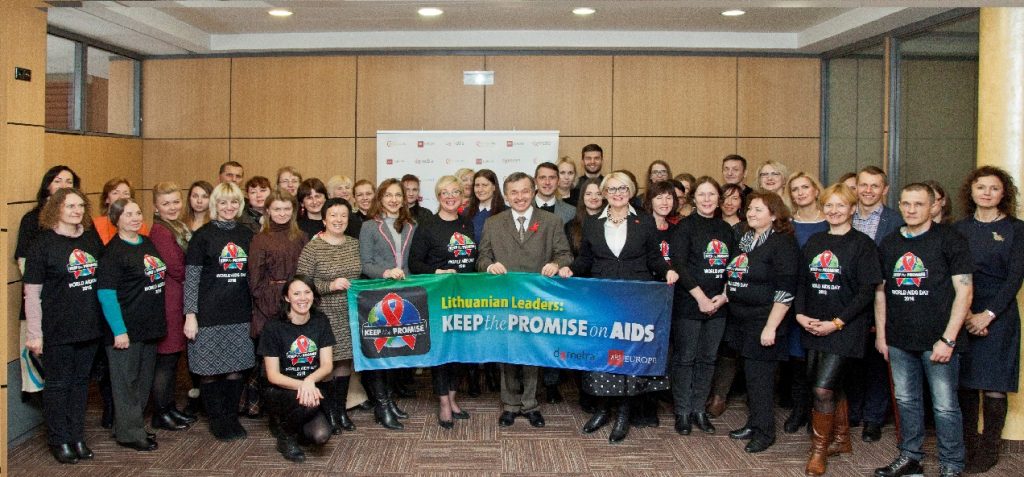
COBATEST member Association of HIV-Affected Women and their Families Demetra was forced to stop activity early in 2017 due to the Lithuanian Ministry of Health’s crackdown on community-based voluntary counselling and testing (CBVCT). Dr. Loreta Stoniene, Demetra’s Advocacy Officer, explains that although CBVCT recently resumed in Demetra, more challenges lie ahead.
In 2012, Demetra with the AIDS Healthcare Foundation began offering rapid HIV tests to increase the number of people in Lithuania who know their HIV status, particularly in risk groups. National statistics showed that more and more citizens were choosing to have a HIV test. In the five year period, Demetra along with partner organizations performed more than 80,000 rapid HIV tests, of which 1.3% was reactive. Demetra was only able to offer this rapid testing in the community by cooperating with a medical institution, a requirement of restrictive Lithuanian laws.
The success of Demetra’s rapid testing programme was interrupted in 2017 by the governmental institution the Centre for Communicable Diseases and AIDS, which claimed that Demetra was operating illegally. As a result of this and the legislative “grey zone”, rapid HIV testing in Lithuanian community-based organisations was banned in February.
International organizations and networks expressed concerns that the ban blocked access to services for the most vulnerable and would be detrimental to the control of the HIV epidemic. Soon 60 national and international organizations had signed an open letter to Minister of Health of the Republic of Lithuania demanding that rapid testing be made available again.
After five months of strong advocacy efforts, an interim victory was won. The Minister of Health signed amendments to the legal acts which allow HIV testing to be offered as before, through cooperation with medical facilities. In spite of all the barriers, Demetra began rapid HIV testing in community settings again on 1st September 2017.
This is just interim achievement. The next task is to ensure that non-medical staff in Lithuania can perform rapid HIV testing, like in other EU countries. Demetra hopes that EU projects will help with tools to persuade Lithuanian decision-makers to move away from the medical approach and guarantee acceptable services for vulnerable and/or non-insured population groups.

